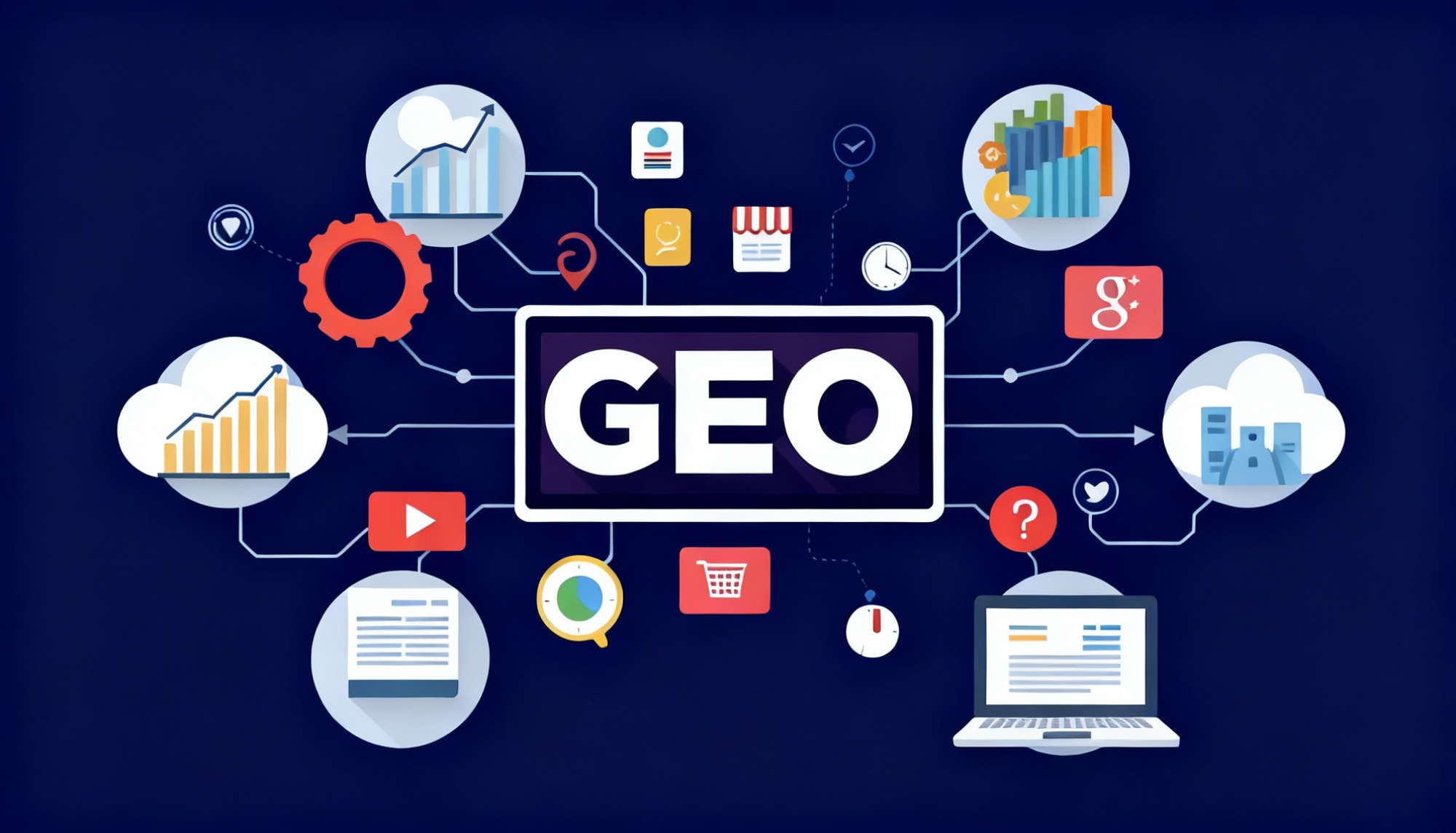With the emergence of revolutionary AI tools such as ChatGPT, there has been an increase in discussions about AI-generated content dominating the future, including the digital marketing industry.
In the realm of SEO, the viability of machine-generated content has become a hotly debated topic. Questions about its feasibility, impact on search rankings, and potential to enhance SEO strategies are on the minds of many.
Although the answers to these questions may shift with time, at present, a significant number of individuals are seeking to comprehend Chat GPT and its benefits and limitations about SEO.
In this blog, we’ll discuss if using ChatGPT for SEO content is a good idea.
What is ChatGPT?
ChatGPT is a powerful language model based on the GPT-3 architecture. Developed by OpenAI, it can generate human-like responses to a wide range of prompts and questions. The model has been trained on a massive dataset of diverse texts, allowing it to understand and respond to various topics with high accuracy and relevance.
One of the key benefits of using ChatGPT is that it can generate content quickly and efficiently. This is particularly useful for content creation tasks such as writing blog posts, articles, product descriptions, and social media posts.
By leveraging the capabilities of ChatGPT, content creators can produce engaging and informative content that resonates with their target audience. In essence, it is a highly efficient chatbot that can help you optimize your content.
ChatGPT is not a one-size-fits-all solution
While marketers tout ChatGPT as a powerful tool for creating SEO content, experts also know it is not a one-size-fits-all solution. It can generate high-quality text in various styles and formats, but there are limitations to the quality of publishing content created with ChatGPT.
For example, ChatGPT may help you develop an article on SEO, but it would struggle to produce content on specific SEO content that meets your business requirements. ChatGPT would produce mediocre results for highly technical or specialized topics that require in-depth knowledge and understanding. It may also have difficulty generating content customized to a specific audience or brand voice.
In addition, using ChatGPT as your website or blog's sole source of content can lead to a lack of originality and creativity. However, it can provide a starting point or inspiration for your content. Incorporating your unique ideas and perspectives is essential to stand out from the competition.
Read on to know why using only ChatGPT for SEO is not a good idea.
Why is ChatGPT bad for SEO content?
Lacks E-E-A-T
According to Google, the quality of a piece of content is determined by its E-E-A-T pillars, which stand for experience, expertise, authoritativeness, and trustworthiness.
It seems unlikely that AI-generated or ChatGPT content would meet these standards, especially regarding "your money or your life" (YMYL) topics such as medical or financial advice. This raises concerns about the potential danger of an AI-generated response in such critical areas.
Therefore, before generating a thousand words using artificial intelligence for a topic, it is essential to consider whether the content would have the necessary experience, expertise, and authority to provide a high-quality answer for a search engine user.
It's also worth considering if involving an expert or someone with direct experience on the topic would be a better solution.
Factually inaccurate or low-quality
ChatGPT operates independently of the internet and relies on the data it was trained to generate responses. This data could have been sourced from various materials, such as articles, books, and websites. However, ChatGPT's knowledge is restricted to the data available until its training cutoff date in 2021.
This poses several challenges, primarily the difficulty of ensuring content accuracy, especially for topics that require up-to-date information. Additionally, there is a risk of ChatGPT misunderstanding user requests, resulting in inaccurate or irrelevant content.
Furthermore, ChatGPT lacks human insight and understanding, which can cause difficulty in comprehending nuanced topics. It may also produce awkward phrasing and syntax errors that negatively impact the user experience.
Barrier to entry for content creation is lower
AI-generated content has now made it easier for anyone to create content, reducing the entry barrier into the content creation industry. However, this could lead to a subset of content creators who lack critical thinking skills and creativity.
With the help of ChatGPT, content creators no longer need to possess knowledge on a specific topic or undertake the critical thinking and research necessary to create a well-structured outline. The AI-generated outline can be used to generate a 2,000-word article within minutes.
In theory, this could result in thousands of new content creators joining the industry, offering their services for lower prices and undercutting the competition. As a result, there are a few potential outcomes:
- High-quality content creators may struggle to compete against lower-priced AI-generated content.
- The value of a high-quality content creator who can effectively leverage AI-generated content may increase.
- Ultimately, the emergence of AI-generated content raises questions about the future of content creation and its impact on the industry.
Does not show real-time search results
Picture a world ten years from now where AI-generated content dominates every webpage. As explained previously, the likely result would be a decline in the overall quality of search results.
Without the human element and the E-E-A-T standards, the quality of the answers provided would only be as good as the AI algorithms allow. Furthermore, some AI tools, such as Jasper, are web-connected and rely on their own generated content to generate more ideas for new content.
This factor could also have a negative impact on the quality of search results.
As a result, two things could happen in such a scenario:
- The value of search results would decrease.
- The value of high-quality search results would increase.
Therefore, involving humans when using AI tools to create complex content is crucial. Without expert human review, the likelihood of producing low-quality content is very high.
Mediocre keyword research and competition analysis
ChatGPT is a great AI-powered language model that can generate content based on specific keywords and topics. However, it may not be the best tool for conducting keyword research and competition analysis. AI tools like ChatGPT lack the same level of understanding and insights as a human SEO specialist.
One of the key areas where ChatGPT may fall short is understanding the nuances of keyword research. While it can generate content based on specific keywords, it may miss crucial details such as search volume, keyword difficulty, and relevance. These factors are essential in determining the best keywords to target for SEO purposes, and missing out on them can lead to suboptimal results.
Another area where ChatGPT may not be as effective is in conducting competitive analysis. To develop a successful SEO strategy, it's essential to analyze competitors' websites and backlink profiles to determine their strengths and weaknesses.
This information can help businesses and organizations develop a more effective SEO strategy that targets their competitors' weaknesses while building on their strengths. Unfortunately, ChatGPT may not be able to conduct this level of analysis, which can significantly hinder a website's SEO efforts.
Does not provide reporting and analysis
A major disadvantage of using ChatGPT for SEO content is that it cannot report or analyze. SEO specialists rely heavily on data to track the performance of their campaigns and make informed decisions about how to improve their website's SEO.
Unfortunately, ChatGPT may not be able to provide the necessary data that SEO specialists require, such as website traffic, rankings, backlinks, and conversions.
Without this information, it can be challenging to determine the effectiveness of a website's SEO strategy or make data-driven decisions to improve it.
While ChatGPT can provide valuable insights into keyword optimization and content creation, it may not provide the comprehensive reporting and analysis businesses require to make informed decisions about their SEO efforts.
What’s Google’s stance on AI content? Does it matter?
Google has perceived ChatGPT as a threat to its survival in the past. However, the search engine giant has discussed automatically generated content on multiple occasions over the years, and their perspective on the matter has evolved.
Previously, Google appeared to hold the view that all automatically generated content was undesirable. More recently, it has clarified that automatically generated content aimed at manipulating search rankings is the real issue.
In January 2023, Google tweeted its stance on the matter, outlined in its spam policies. According to Google, spammy auto-generated content includes:
- Text packed with search keywords that don’t make sense to the reader
- Content translated by an automated tool without human oversight
- Text generated through automated processes without considering quality or user experience
Conclusion: Using ChatGPT for SEO is not ideal
ChatGPT is a language model trained on vast data and can produce grammatically correct and coherent text. While using ChatGPT for generating SEO content may seem like a convenient and time-saving option, it is not an ideal approach. However, it lacks the human touch and understanding necessary for creating high-quality SEO content.
Search engines like Google regularly update their algorithms to better understand and serve users. They look for content that provides value, answers questions, and is written in a natural, engaging way. ChatGPT may be able to generate grammatically correct text, but it may not meet the other requirements that search engines are looking for.
Additionally, using ChatGPT for SEO content can also result in duplicate content. The language model may generate similar text for multiple clients, which can harm their search rankings. Duplicate content can damage a brand's reputation.
All in all, while ChatGPT may seem like a convenient option for generating SEO content, it is not an ideal approach. Creating high-quality SEO content requires human expertise to understand the audience, search engine requirements, and brand voice.
To ensure that your content is both engaging and optimized for search engines, it is recommended to work with experienced SEO copywriters. You can also opt for a specialized AI tool that helps you generate optimized and natural-sounding content.
Let’s see which AI-powered writing tool can help us with SEO content effectively.
Use Scalenut, more powerful for SEO content than ChatGPT
Scalenut is an AI-powered SEO tool that surpasses ChatGPT's capabilities in several ways. With its specialized keyword planner, Scalenut generates keyword clusters for your desired keyword and location, enabling you to establish content authority and identify relevant content topics. This feature is essential for businesses and organizations seeking to enhance their SEO efforts, as it helps them identify the most relevant and effective keywords to target.
In addition to its keyword planner, Scalenut's AI Writer has a topic research function that conducts a comprehensive analysis of the internet to uncover critical insights.
This function provides users with a wealth of information, including competition overviews, structural outlines, essential questions on different platforms, NLP (natural language processing) key terms, statistics, and other relevant data. With this information at your fingertips, you can make more informed decisions about your content strategy and optimize your content to achieve better search engine rankings.
Scalenut's suite of SEO tools is tailored to the unique needs of SEO professionals, making it one of the 30 best ChatGPT alternatives to use in 2023. Unlike ChatGPT, Scalenut's SEO tools, like Content Optimizer, include features such as keyword research, competitor analysis, rank tracking, backlink analysis, and more.
These features provide users with a deeper understanding of their website's performance and actionable insights to optimize their websites for better search engine rankings.
One of Scalenut's most unique features is its Cruise Mode. With this feature, you can generate an optimized blog in as little as five minutes. This is a game-changer for businesses and organizations that need to produce high-quality website content and blogs quickly and efficiently.
While ChatGPT may be useful for generating content ideas and optimizing keywords, Scalenut offers a more comprehensive set of features that specifically support the needs of SEO practitioners. So, when it comes to ChatGPT vs Scalenut for SEO content, the latter is way more wholesome and efficient.
The platform is designed to help businesses and organizations achieve better search engine rankings, increase website traffic, and generate more leads and revenue. If you're serious about enhancing your SEO efforts, it's worth signing up for Scalenut's 7-day free trial to experience its capabilities for yourself.








.webp)


